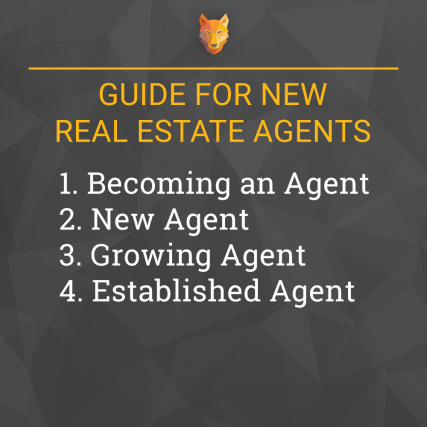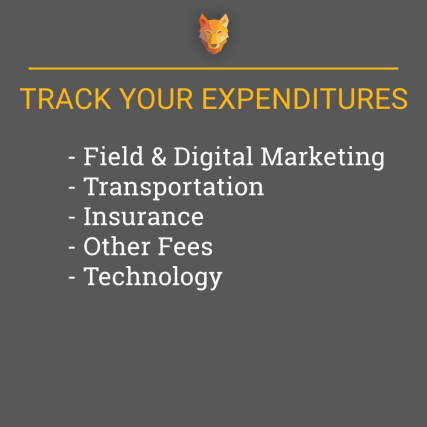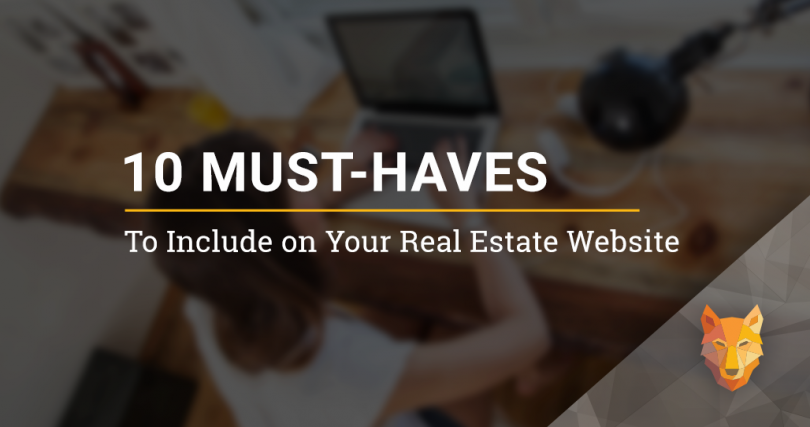You are viewing our site as an Agent, Switch Your View:
Agent | Broker Reset Filters to Default Back to ListThe Guide for New Real Estate Agents
June 12 2018
So you've decided to be a real estate agent. You're passionate about homes and you want to see people smile when they get the keys to their new place. But we know it can be tough to know where start—so we're outlining where to begin before jumping head-first into real estate.
This guide is split into four parts and is meant to be used for your starting year as an agent. It includes 1.) Must-do's for before you become an agent; 2.) Once you become a new agent; 3.) When you are a growing agent, and 4.) When you are an established agent.

1. Before You Become a Real Estate Agent
Study For Your Real Estate Licensing Exam (and Ace It)
Nothing great happens without a little hard work. Before you take your licensing exam, you have to take a state pre-licensing course. The National Association of Realtors (NAR) explains that your pre-licensing course can be taken in-person or online, which means you can learn the ins and outs of being an agent anytime.
Your pre-licensing course will teach you all about the rules, regulations, and codes for being a real estate agent. Once you've completed it, take your state's real estate agent licensing exam. Licensing exam questions focus on calculations related to selling homes, federal, and state laws. For the steps that come after getting your license but between joining a brokerage, read the NAR's step-by-step walkthrough on how to be a fully-licensed real estate agent.
Define What Type of Agent You Want to Be
Now that you're a licensed agent, it's time to research and define what kind of agent you want to be. This includes understanding your local market, what types of properties are popular, and where you fit in the mix. How can you differentiate yourself from the competition? Sometimes this means having a fresh approach — like using social media to promote your listings when others in your area don't — or focusing on a specific type of property.
2.) When You are a New Agent
Create Your Personal Brand
Beyond the outer appearance of you and the homes you sell is something more that your customers and contacts will recognize. That is your personal real estate brand. Working to develop and present your brand to the world will gain you new leads and help you excel in your local market.
Your personal brand could involve the types of properties you sell or it could be centered on your excellent customer service. No matter what type of brand you go for you have to stick with it and promote it in every way possible — through your website, the way you interact with customers, and through your other online and social channels.
Get a Custom Real Estate Agent Website
Speaking of promoting your personal real estate brand through a website, it's time to get one! You need a website with IDX property search to start your selling journey off right. What is IDX, you ask? IDX stands for "Internal Data Exchange." If this sounds unfamiliar to you, head over to our What is IDX? page to learn more.
Your website is the face you show to the online world. Consider all aspects of your personal brand and local market to use language and design to tell your story through your website. To figure out these digital details, ask yourself the questions below:
- Who is my audience?
- How do I fit in the market?
- What unique skills do I bring to the table?
Start a Budget

Budgeting isn't just for money, it's for time, too. Once you've been working as an agent for a few months, you will start to see trends in how you spend your time and money. Make sure to keep track of everything you do during the day and what you spend on:
- Field and digital marketing
- Transportation
- Insurance
- Other fees
- Technology
Try to over-budget for both time and money, especially when you're just starting out.
3.) When You Are a Growing Agent
Organize Your Leads
Build a contact list of people you already know in person, on social media, and through email. Collect their first and last names, phone numbers, and emails and store them in an Excel file. Whenever you meet a new lead, make sure to add them to this list.
Network and Promote
Networking with others is how you promote yourself in person, but you also need to promote yourself online. Find local business owners and other agents with experience to show you the ropes, then head into the wild jungles of meeting potential customers the digital way.
Double-down on getting leads by creating and using a real estate blog, LinkedIn, Facebook, and/or Twitter. Don't forget to share your listings on Craigslist, too. Persistence is key for finding lead-generation success online and in person.
4.) When You Are an Established Agent
Nurture Your Leads
You've created an excellent website that generates leads, now you should try a few other methods to really up your game. To hone in on your target market, use local search engine optimization (SEO) to make sure your listings and website show up when people search things like "Brooklyn homes for sale," or "Real estate agents in Minneapolis." Check out our "Five Ways to use SEO to Drive Real Estate Leads" to help you get started.
Use the analytics tools available for your established social media sites to determine what type of content works. Change up the designs you use (while still being in line with your personal brand) and post some ads on Facebook. There are many ways you can try new things without disrupting your existing marketing strategy. Read Buffer's blog that is full of helpful examples of social media experiments for ideas.
Start Strong
Congratulations on starting your real estate agent journey. Following the steps above will give you an edge on the competition and set you up for success. For even more real estate agent marketing tips, download our free Real Estate Marketing 101 ebook.
To view the original article, visit the WolfNet blog.











